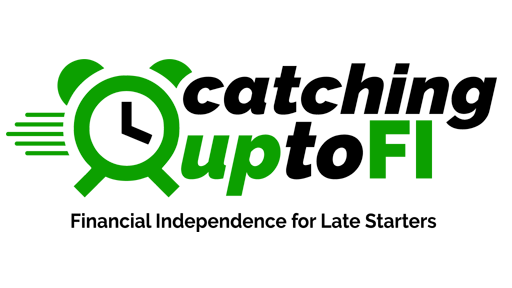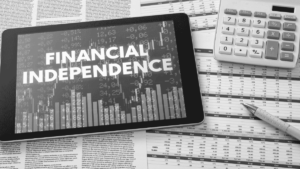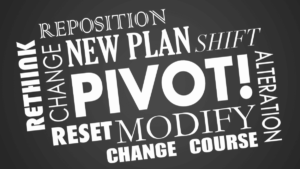In a previous post titled How To Do A Budget, I showed you the How of doing a budget. How to identify what categories need to be included, the basic math used and a spreadsheet to start creating your own budget. You can use this spreadsheet, a pencil, and paper, or one of several apps for budgeting. Some of the more popular are YNAB, Mint, and Every Dollar.
This post talks about the Why of Budgeting. A budget is just a list of categories with math behind it, but the emotions and decisions that are wrapped up in putting together your first budget can be overwhelming. This post will help you work through your own Why as you wrestle with these concepts.
Budgeting can be a scary word. Many people approach budgets with fear, especially if they don’t have much experience with them. But budgeting does not mean you will have to start scrimping and living like a miser. It just means you understand your finances and have control over them.
It’s stressful not knowing what money is coming in, what’s going out, and what our obligations are. No matter how big our checking account is, we can feel stressed.
Budgeting is creating a plan to help you get your finances where you want them to be. A budget is the ideal way to get an understanding of the way you spend, the way you save, and then identify ways to improve. A budget also helps define your values. Look at where you spend your money. Does that align with your goals and values? If not, changes can be made.
9 Benefits of Budgeting
(1)Gives You a Framework for Money Conversation
There was a time in my marriage when money conversations almost always fell off the cliff into the abyss of arguing, pain, and indecision. We couldn’t agree and the conversations led us nowhere. I talk about this in the post Being on the Same Page With Your Spouse.
If you’re married, don’t start the conversation by talking about money. Start by talking about your WHY. Talk about your wants, dreams, and goals. Why are you saving, why would you care about how much you’re spending? Will it relieve stress in your life and your relationship? Will it allow you to go on that vacation you’ve been dreaming of? What’s your WHY?
After you’ve had a few of these conversations, THEN you can talk about money. Working on your budget together can become the basis for many interesting and productive money conversations. Make the decisions together. Compromise together. No matter where you are starting…have patience with each other.
(2) Provides Control Over Your Money
You have total control over where you spend your money. If you choose to spend money on A, then you may not have as much for B. If you want a latte three times a week, put it in the budget. If getting a babysitter once a month is important, put it in the budget. If there’s no room for those discretionary items, cut back somewhere else.
What if there’s no room for any of those things? If your finances are a dumpster fire, cut everything you can! Just remember, it won’t be like this forever. There was a time when I told my kids, “If you can’t eat it, we’re not buying it.” These times were not pleasant, but they were temporary. We dug ourselves out and you can, too!(3) Let’s You Track Your Financial Goals – Saving, Long-Term Spending, and The Emergency Fund
A budget will not only help you plan for this week and this month, but it will also help you with long-term goals. Do you want to take a big vacation in five years? Will you need a roof or major car repair next year? Do you need to beef up your Emergency Fund? A budget can help you find and accumulate cash for these kinds of issues.(4) Budgeting Will Open Your Eyes. It Helps Shed Light on Bad Spending Habits
Do you get to the end of the month and think, “Where did all my paycheck go?!” Does it feel like it disappeared? Once you really start looking at your spending, you will be able to identify where it’s going.You may have large medical bills that you just have to gut through till they’re paid. Or you may find that you’ve got some bad spending habits that need to be reigned in, like going to the drive-thru too often or all those Amazon boxes! How about bank fees? If you are paying the bank for overdraft fees, this needs to stop now!
(5) Helps Create a Cushion for Unexpected Expenses – Emergency Fund
Do you have an emergency fund? If not, you need to start working on that today. We all have emergencies! No one is exempt. For some people, a flat tire or car repair is a real emergency. An illness or a broken heater can be financially devastating.The lack of an emergency fund is what caused most of my and Stephen’s financial hardships earlier in life. “Stuff” happened and we had no safety net.
Could you cover a $500 emergency without going into debt? $1000? $5000? How about a job layoff? You need 3-6 months of living expenses in an emergency fund. This needs to be kept in an easily accessible place. But not too easy. A savings account or money market fund will do nicely for now. Remember, this is not a new couch fund!
(6) Helps Identify Money for Paying Down Debt
If you are paying down debt like credit card or student loan debt, a budget will help you identify cash you can send toward that debt. Any extra cash you can use to pay down debt will get rid of it sooner and save you money in interest payments. If you’re having trouble making your minimum payments…see dumpster fire above!(7) Helps Identify Money for Investing
If your Emergency Fund is in place and you are paying on your debt, you may be able to identify some extra cash to start investing. If you can identify money to invest, I would start with your employer’s 401k and get the match. I will talk more about investing in a future blog post, but for now, do everything you can to get your employer’s match if you have one. Don’t turn down free money!
(8) Helps Ensure You Don’t Spend Money You Don’t Have
You may be in a place where you are spending more money than you make. Stephen and I did that for a while when he had no income. It felt terrible! We were living on credit cards and digging a bigger hole with our debt every day. Again, this is a dumpster fire. You may not realize you are doing this. One reason would be because this is “normal” in our culture. A budget can help you identify the problem when more money is going out than coming in.(9) Helps Keep Your Eyes on the Prize (Motivation)
After Stephen and I put out our dumpster fire and got on track with a budget, it helped to keep us motivated. If you’re paying down debt or just starting to invest, the numbers don’t seem to change very quickly. It takes some time to get traction. The budget helped us to “Keep Our Eyes on the Prize!”
Key Takeaway – A budget is an ideal way to get an understanding of the way you spend, the way you save, and then identify ways to improve. A budget also helps define your values. Look at where you spend your money. Does that align with your goals and values?
Assignment 1 – Evaluate your budget WHY. Where do you find yourself with your money right now? Are you in a dumpster fire or are you ready to start investing?
Assignment 2 – If you haven’t done a budget yet, start working on your first draft. There is a spreadsheet template in How To Do A Budget









